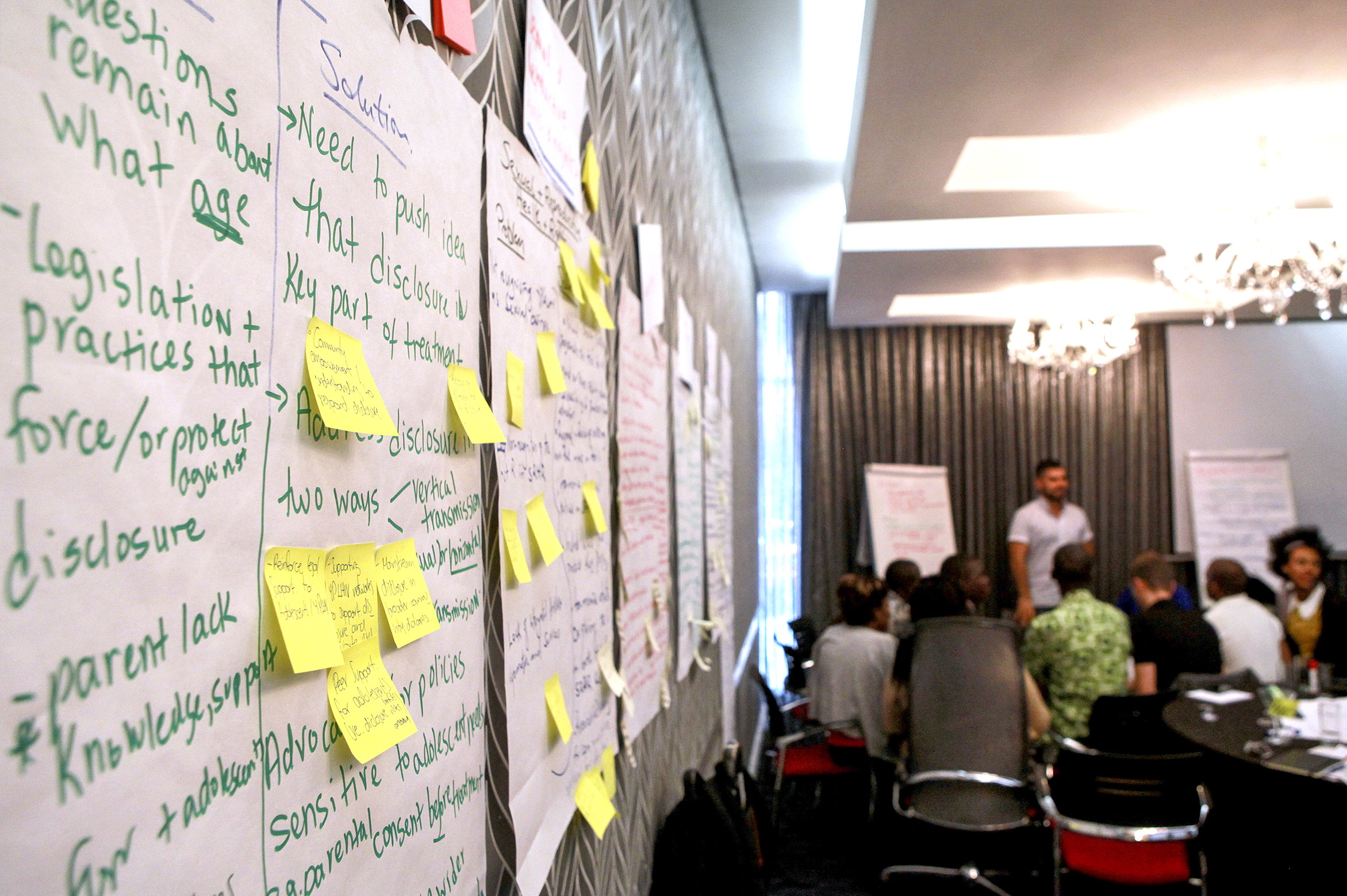Helen Etya’ale, ITPC’s Program Coordinator, shares her reflections from the recent Intergenerational Summit on Positive Youth Leadership and what the HIV advocacy movement looks like through the eyes of youth leadership.
August 12th is International Youth Day. In light of that, I can’t help but think back on my recent experiences and observations from the Intergenerational Summit on Positive Youth Leadership – which highlighted, in a very real way, the voices of young people living with HIV (YPLHIV). It’s a commonly used phrase: “today’s youth are the future leaders of tomorrow”. So, when faced with the leaders of YLPHIV networks from around the world gathered together in this Summit, it is fitting to characterize this as a meeting of those currently championing the plight of YLPHIV but also those poised to becoming strong players in the future of the HIV response.
The Summit was the chance to ask some important questions: What does a youth-led HIV response actually look like? How supported are global and national YLHIV networks? How are we equipping leaders of PLHIV networks to best support their peers and make a difference in their communities?
Several responses arose, but there was one that clearly emerged: by giving them a seat at the table.
Young people may be young in age but are often carrying responsibilities beyond their years. Anyone who has transitioned into adulthood knows what it is like to be an adolescent, a young adult. While experiences may vary worldwide, this is without a doubt a time of change, of navigating through transitions, dealing with obligations at work/school, figuring out one’s future – which alone can be a challenging enough.
As YPLHIV actively involved in their networks, in addition to managing their individual responsibilities, these youths dedicate much of their time and energy advocating for the needs of their peers. Running a YLPHIV network goes beyond simply providing peer support and carrying out advocacy activities but also involves more demanding tasks, such as establishing clear and transparent financial procedures for the organization, implementing monitoring and evaluation systems, complying with local registration and legal requirements and establishing and maintaining solid governance structures. What’s even more remarkable is the breath of advocacy and peer support activities carried out by YPLHIV, many of whom operate with little to no resources – and in often tough sociopolitical environments.
So what’s clear is that being young is not synonymous with inexperience or lack of knowledge. Given a seat at a table, YLPHIV have the capacity to speak knowledgeably about the issues that concern them. Some may even hold the key to innovative ways to respond to the needs of their peers. A YLPHIV from Uganda, for example, shared how they use a WhatsApp group to track ART stock outs at health centres and bring these to the attention of district level health officials for follow-up and action.
Despite these evident capacities, the challenges of running a YLPHIV are not to be minimized. With the requirements from donors or other partners to maintain strong organizational structures, YLPHIV are regularly faced with the competing demands of both meeting these requirements and remaining responsive to the needs of their communities.
YLHIV networks have real needs, and with targeted financial and advisory support, can be empowered to achieve their objectives. Thus, investing in the future of an HIV response also implies concretely building the capacity of YLPHIV networks. Trusting that they know what to do, and providing them with the required support to do so.
It is true that there may not be any simple or blanket solutions. But a good place to start is to listen. Youth often still face great difficulties in having their voices heard – but their presence and potential to be powerful agents of change in their communities cannot be undermined. Looking back on this Summit is a welcome opportunity to raise the profile of YLPHIV voices of and a continued reminder that, in the strive towards the end of HIV, YLPHIV cannot be left behind.
—-
About the meeting
The Intergenerational Summit on Positive Youth Leadership, organized by the Adolescent Treatment Coalition (ATC) was held last 19-20 June 2017 in Cape Town, South Africa. The summit brought together representatives of youth networks working with young people living with HIV and young key populations globally—operating in countries such as Zambia, Philippines, Uganda, India, Argentina, Brazil and Ukraine, among others. A member of the ATC, ITPC was engaged in the Summit as a support organization. Under the wider umbrella of community advocacy for HIV treatment access, ITPC is committed to raising the profile and advocating around the specific treatment access issues affecting children and adolescents living with HIV. ITPC is, thus, uniquely positioned as a resource, providing effective advocacy tools and resources to raise awareness and trigger action—to ensure that YLPHIV are not forgotten in the HIV response.
To find out more about the Adolescent Treatment Coalition and ITPC’s involvement, visit their website.
Photo by Jennifer Bruce/UNAIDS (2014).
